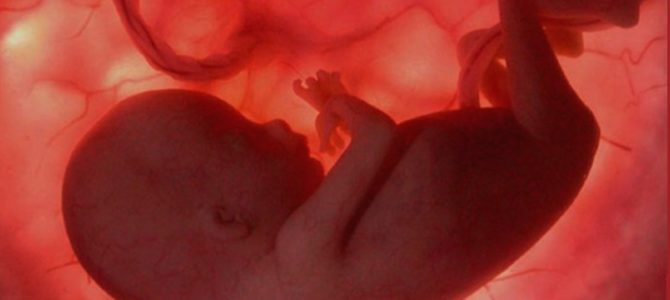
Ireland voted to repeal its long-standing abortion ban on Friday, overturning a constitutional amendment that protected “the right to life of the unborn,” requiring legislators to consider the inherent worth of the fetus in all legislative decisions. In the span of just 35 years, Ireland’s overwhelmingly Catholic population has drifted, in public attitudes and votes, from entrenching the rights of the unborn to laying the foundation for stripping them away.
Newspapers around the world are hailing the decision as an “historic” mandate to expand women’s rights across the nation, which is abandoning its Catholic sensibilities for the trappings of progressivism at warp speed. But what the overflow of laudations is failing to see is that the voters in Ireland, in the name of “women’s rights,” are trampling upon rights that are key to the existence of the liberal democracy that allowed for such a referendum in the first place.
Let’s start with the rights on which the “Yes” Vote (that is, the pro-abortion side) premised the repeal: the so-called “woman’s right to choose.” There is no such thing in a liberal democracy. In fact, the goal of ultimate freedom necessarily requires the limitation of certain choices – for example, the choice to disrespect or harm others’ natural rights – in order to create a society in which everyone has the ability to participate in democracy as equals.
Abortion becomes a clear case in which the inherent dignity, and the natural rights thereof, of a person precede the exercise of choice. Indeed, the unborn are the most defenseless, least equipped beings among us to handle the world without our care. It is in these straits, however, that they get attacked as useless, valueless, not even human (despite the fact that every human was once also unborn). When the unborn are viewed as parasites, or as useless clumps of cells, there is no stopping civilized society from viewing other, less developed, or weaker human beings from being viewed the same way.
Even in cases where the personhood of the unborn is debated (such as early gestation of the fetus), liberal democracies must always err on the side of protection. The insinuation that one must “develop” into a creature with rights undermines the liberal democratic ideal that one possesses rights innately, no matter how weak or strong. If we value natural rights at all, we must value natural rights for all.
Indeed, we have an obligation to the unborn, because though they are fully and completely human, they are also those with the least self-sufficiency in liberal democratic society. They cannot vote. They cannot participate in a referendum to determine whether they should be expunged from their mother’s womb. They cannot advocate for themselves in even the basic way in which every other human in the world can.
This fact of their inability to participate fully in society – not their lack of human dignity, but their lack of political awareness – reinforces the need for the rest of society to step in on their behalf, to be advocates on their behalf. We must do so, not so that the unborn may be granted any special protections, but simply so that they may be granted the same basic rights inherent to any liberal democratic society: the rights to life, liberty, and the pursuit of the meaning that makes life worth living.
The Eighth Amendment to the Irish Constitution, repealed this week, had stated this principle of equal dignity concisely and beautifully: that “The State acknowledges the right to life of the unborn and, with due regard to the equal right to life of the mother, guarantees in its laws to respect, and, as far as practicable, by its laws to defend and vindicate that right.”
It reflects the notion that society must treat both the life of the unborn and the mother as if both have equal rights. To say the opposite; i.e. to say that the choice of mother must categorically be preferred over the far more basic right to life of the unborn is to grant special treatment for a particular segment of society.
Such special treatment, antithetical to the foundations of liberal democracy, would set the precedent for special interest groups of all kinds to demand that their whims too be satisfied at the expense of the basic rights of others (for example: the whims of sensitive college students over the free speech of their peers). This can only put us on the road to illiberalism.
Legislators who supported repeal of the protections promised that “abortion on demand” would not be the status quo, introducing legislation to regulate abortion to fetuses under 12 weeks and to fetuses that endanger the “health of the mother,” including “mental health.” But the reality of the situation is that 98 percent of the 190,000 abortions carried out in the neighboring United Kingdom per year cited “mental health” as the primary reason for terminating the pregnancy. So the upcoming legislation that will accompany the outcome of the referendum will effectively turn the country’s abortion laws into a facsimile of other countries where legalized abortion is the norm.
The constitutional amendment that the Irish just voted to put down was, quite simply, the only true protection of the rights of the unborn in Ireland. And now it is gone.









